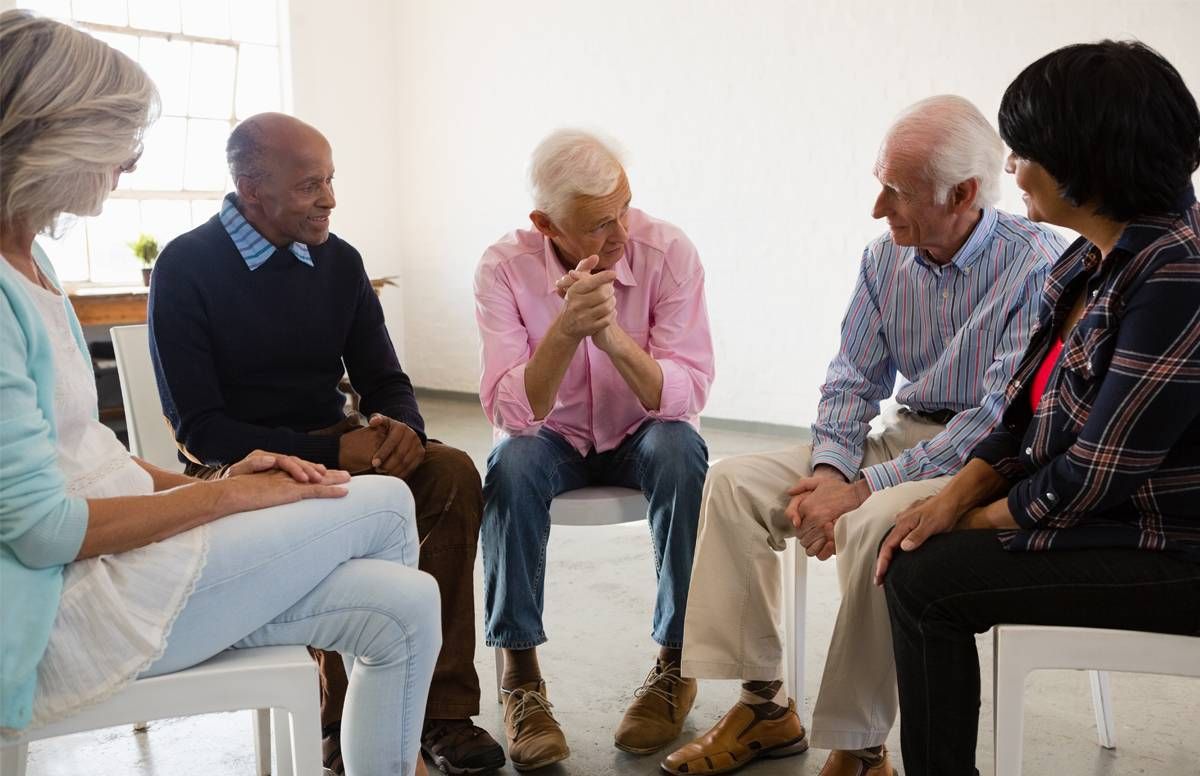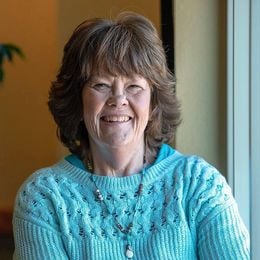How I'm Coping Without My Grief Support Group
During COVID-19, the key is staying connected to those who understand
I barely remember my first attempt at attending a grief support group through hospice after my husband, Dale, 57, died of a sudden, massive heart attack two days before Thanksgiving in 2018.

It was very early in my grieving process, before Christmas in 2018, as the group was having a holiday potluck that day. I don’t remember anything that was said, but just recall I was the only one crying uncontrollably.
While several people in the group reached out to me afterward, I still felt too vulnerable, and decided not to go back, at least not right away.
After months of individual counseling with a therapist and the grief counselor through hospice, I decided it might be helpful to hear from others who were grieving the same kind of loss.
I never regretted that second attempt.
I had been attending the grief group for five months when it was indefinitely suspended due to social distancing during the coronavirus pandemic. I had not only come to rely on those weekly group meetings to help me through my grieving process, but had become friends with members of the group. In many ways, I consider them my “grief family.”
In the weeks since we have not been meeting, I’ve felt even more isolated, abandoned and lacking control of “normalcy” in my life.
Grief Support Groups Ease Isolation
Charlotte Repp, bereavement coordinator for Hospice of the Ozarks in Mountain Home, Ark., where I attended my meetings and seek individual counseling by phone, says grief groups may not be for everyone. But for many, they offer the opportunity to share with people who understand your circumstances.
In the weeks since we have not been meeting, I’ve felt even more isolated, abandoned and lacking control of “normalcy” in my life.
“It’s important to be able to see others who have lived through the worst time in their lives and know they can come through it, too,” Repp says. “For the newly bereaved, especially, it helps to look into someone else’s eyes and know they will be OK.”
Repp says the forced shutdown has had a profound effect on attendees, many of whom look to the groups each week for not only emotional, but social support.
“The hardest thing people tell me they’re going through right now is missing the friends they’ve made through the groups. This has also been difficult on me, as I miss the people and interaction as well,” she says.
Repp adds that it’s been very difficult during the pandemic because many newly grieving people were not allowed to be with their loved ones when they passed, because they were in nursing homes or hospitals in quarantine.
Reaching Out to Maintain Connections
Repp has assigned volunteers and others to call the grief group members so they don’t feel abandoned and alone during this difficult time. She has been thinking about coordinating conference calls or video conference meetings soon.
Repp facilitates five grief groups through hospice, all of them free to anyone who wants to join, even if their loved one did not use hospice services before their passing. My group, which usually meets Monday afternoons, is not specifically for those who lost spouses, but most of the meetings have 20 or more people who have.
That fact, along with knowing Repp can identify with our losses — she lost her 65-year-old husband, John, seven years ago to suicide — helped me begin to want to learn from those who also have been through the trauma of loss.
My particular group talks through lessons on dealing with bereavement and life each week and then breaks into smaller subgroups to share our own losses, and the experiences we’ve encountered since we last met. I hoped always to heal enough so that I could, eventually, be that “light that leads others through the tunnel.”
Our Commitment to Covering the Coronavirus
We are committed to reliable reporting on the risks of the coronavirus and steps you can take to benefit you, your loved ones and others in your community. Read Next Avenue's Coronavirus Coverage.
A Chance to Help and Inspire Others
I felt I was on the cusp of that breakthrough when I decided in our last meeting to stop talking about Dale’s death and start sharing funny and good memories of his life — of our life together. I thought doing so would not only continue to assist in my healing, but help the many new members who recently joined the group see that those memories will, eventually, bring them comfort.
That was also Donna Cusson’s goal in continuing to come to the group meetings. The 76-year-old lost her husband, Roland, in January 2019. She had moved to Mountain Home from Alaska after 45 years. With the exception of her daughter’s family, she didn’t know anyone in Mountain Home.
“I knew I had to do something, as I was very depressed,” says Cusson, who started coming to the group on the same day I joined, in the fall of 2019. “I think I’m more steady on my feet now, but I felt bad for others who just started and now cannot go.”
Cusson says she had a hard time right after the meetings were canceled due to the coronavirus. But she has adjusted by keeping herself busy doing her favorite hobby. “Knitting keeps my mind busy, it’s very therapeutic and I also accomplish something,” she says. “It’s been a life saver.”
Like me, Cusson plans on returning to the group when it resumes, whenever that may be. “I feel like people were there to help me and I need to go and help others,” she says.
Coping on My Own
I’ve also found my peace by calling the friends I made in the group, such as Cusson, to check in with them. I also try to keep busy writing and making sure I keep up my physical activity by walking the dogs each day. Beautiful spring weather allows me to work in the yard.
I lean on my spiritual growth and try to look within to find what I can learn from this forced social distancing, which is yet another instance in which I feel abandoned and not in control over my life and decisions.
Repp suggests all of these ways to cope, as well as continuing to maintain physical health by getting enough sleep and maintaining a healthy diet of nutritional foods.
For those who know someone grieving who has suddenly been cut off from their group, you can help as well, by calling and even writing notes and sending cards. “People still like to get handwritten notes in the mail,” Repp says.


